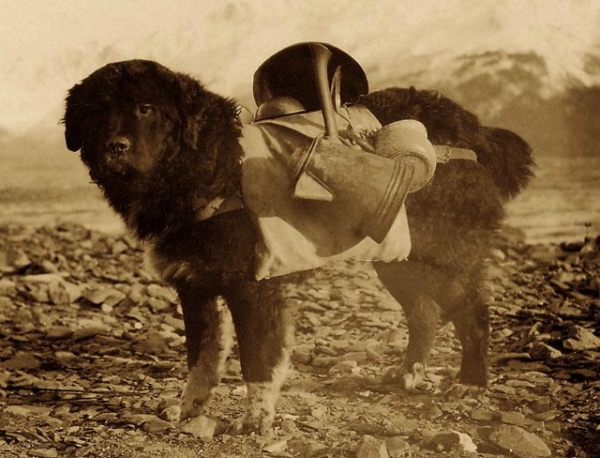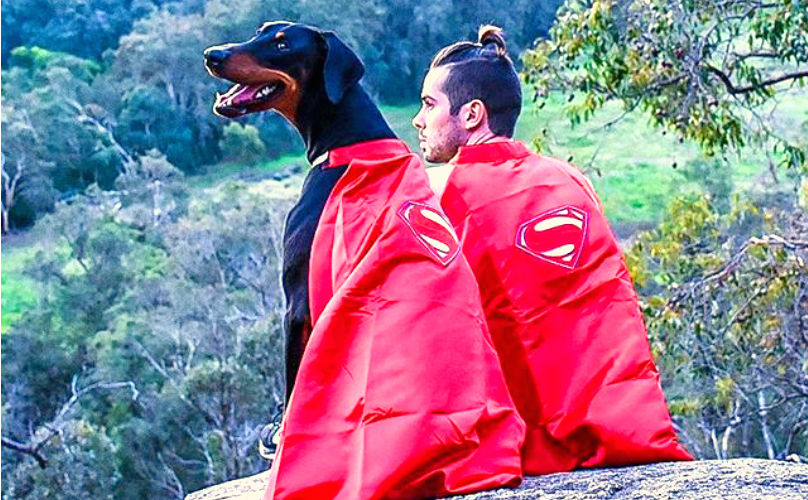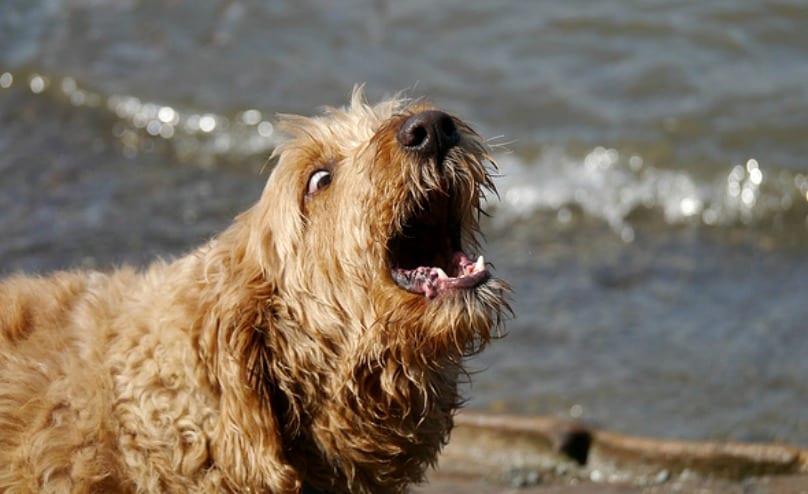We here at Bark & Co. need never debate the truth behind the phrase “Man (& Woman)’s Best Friend.” After all, we get to be reminded all day, everyday, how awesome dogs are and all of the ways in which they often make better friends than our fellow bipeds. I mean, your dog will never take your car, total it, and then omit you from their life entirely just so they don’t have to fess up to the fact that they effed up. Dogs can’t even drive. Just sayin’.
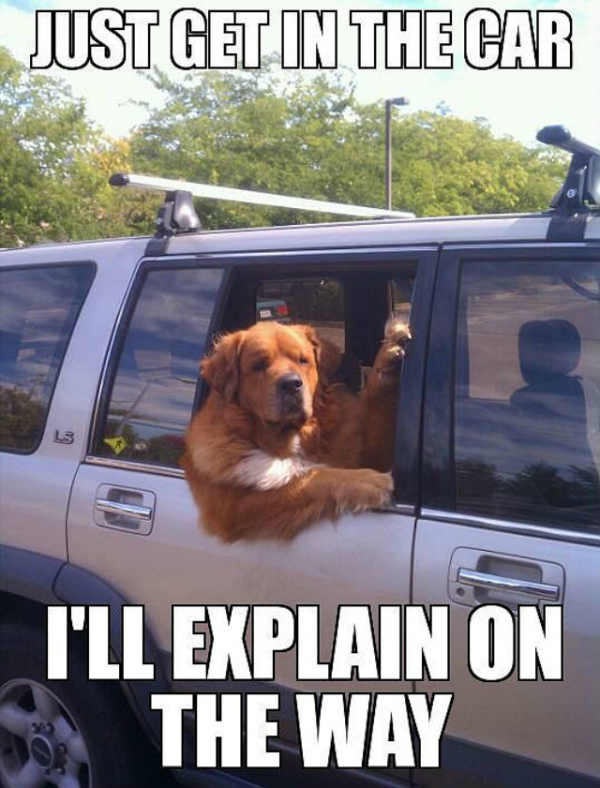

But who coined the term “Man’s Best Friend” and how far does it date back? Very good questions. Let’s do a little digging!
Argos The Unwavering
One of the very first favorable mentions of dogs in historical records or literature is an 8th Century B.C. tearjerker. In Homer’s The Odyssey (ever heard of it?), Odysseus’ notoriously badass dog Argos is the only one to recognize him upon his return from 10 years fighting in Troy and another 10 walking around all lost and stuff. Not only was Argos now over 20-years-old, but in his master’s absence he had been neglected and forgotten, relegated to sleep on a pile of manure. When Odysseus returned he was heartbroken to find what was only a shell of the dog he left behind.
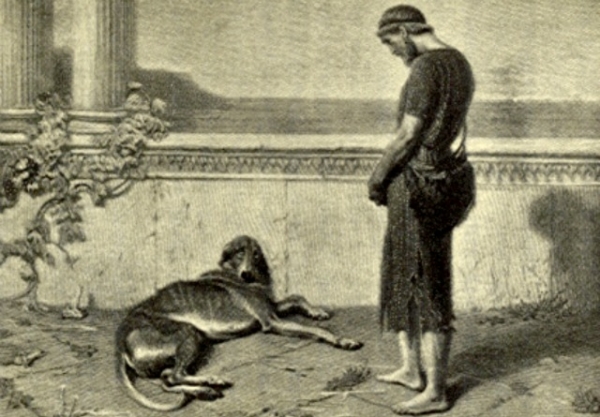

Because of the hoard of suitors moving in on his wife, Odysseus had to remain disguised as a beggar. While he was able to fool all of the people from his past, there was no fooling his beloved best friend. Argos had been waiting all of those years to see the safe return of his master and, when he finally did, he was too weak to stand. He did, however, manage to drop his ears and wag his tail. Odysseus, for fear of blowing his own cover, couldn’t even greet the one true friend he’d ever known. He let slip a single tear, entered his hall, and with that Argos died.
Dharma In The Himalayas
The Mahabharata, one of the two major Sanskrit epics of Ancient India, includes a story in which five brothers known as the Pandavas renounce all of their worldly possessions and embark on a pilgrimage across India, into the Himalayas, and onward towards Heaven on Mount Sumeru. Just as the brothers were leaving their kingdom, they were joined by a stray dog who would remain with them throughout their journey.
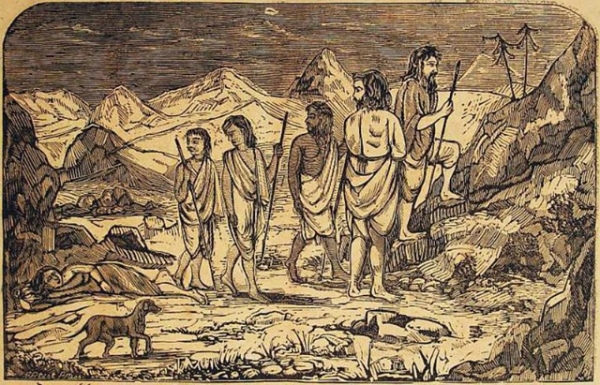

The only brother to reach the peak was Yudhishthira because he was free from sin. As Yudhishthira prepared himself to enter Heaven, Indra told him he must abandon the dog. Our boy Yud refused, citing the dog’s unflinching loyalty and the value of his companionship on the journey. It turned out that the dog was actually Dharma, Yudhishthira’s godfather, in disguise. This symbolized the old adage that dharma will follow you until the end.
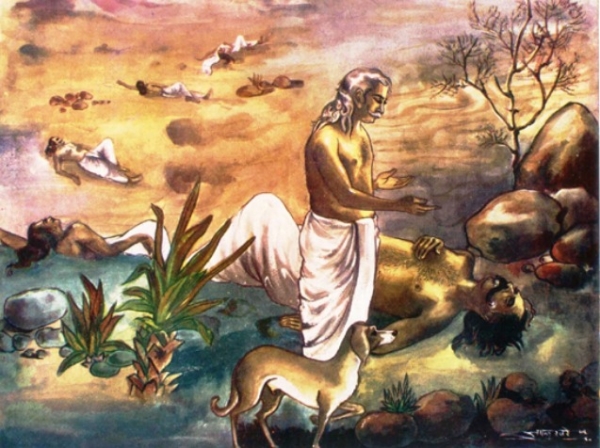

These stories, while amazing, were definitely not the norm. The earliest proverbs mentioning dogs did not refer to them as friendly or loyal, but rather vicious and ravenous. So when did popular opinion change and people start regarding dogs as champions of friendship and devotion?
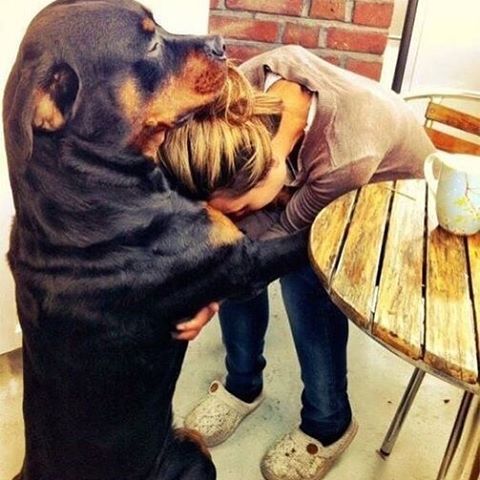

Dogs’ popularity as companion animals began growing in the 18th Century, intensified in the 19th, and finally full-blown flourished in the 20th Century as man began to manipulate breeding to emphasize and diminish certain traits. Over time, what we once viewed as wild animals became our pals. We suspect it probably had something to do with all the hours those hardworking dogs were putting in.
But the first recorded instance of the phrase “man’s best friend” came from King Frederick of Prussia who in 1789 was quoted as saying “dog is man’s best friend,” apparently in reference to his beloved Italian Greyhound.
The first US citation was the sentiment’s appearance in a poem printed in the New-York Literary Journal in 1821. The most famous usage, however, and the instance which many claim coined the phrase, would have to be the heartbreaking tale of Old Drum.
Dear Old Drum
Old Drum was a black and tan Hound dog who belonged to a farmer named Charles Burden. On October 28, 1869, Old Drum wandered into a neighbor’s yard and was shot on sight. Burden heard the gunshot and called his dogs in, they all came running… all except for his favorite. He ventured next door but the neighbor, Leonidas Hornsby, denied having ever seen Old Drum. After a bit of a search, Burden found his dog lying dead and looking as though he’d been placed by the side of a creek. Enraged that he was lied to and that his best friend in the world had been killed, Burden sued Hornsby for $100 in a case that would eventually travel all the way up to the Supreme Court.
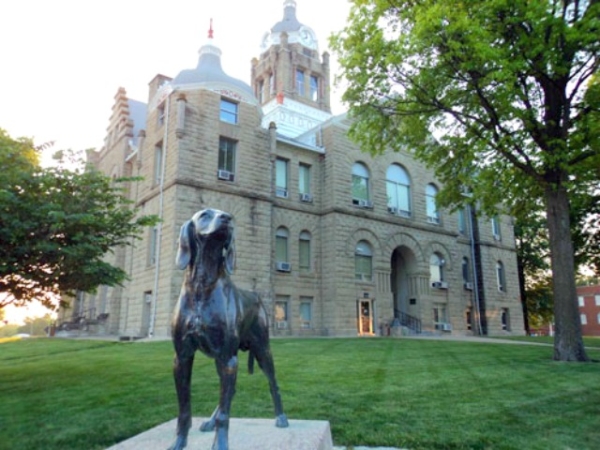

The legacy of the case is two-fold: A statue of Old Drum erected on the Johnson County Courthouse lawn and the eloquent words spoken on behalf of dogs everywhere by Burden’s attorney, George G. Vest in his closing statement, The Eulogy of the Dog:
“Gentlemen of the jury: The best friend a man has in this world may turn against him and become his enemy. His son or daughter that he has reared with loving care may prove ungrateful. Those who are nearest and dearest to us, those whom we trust with our happiness and our good name, may become traitors to their faith. The money that a man has, he may lose. It flies away from him, perhaps when he needs it the most. A man’s reputation may be sacrificed in a moment of ill-considered action. The people who are prone to fall on their knees to do us honor when success is with us may be the first to throw the stone of malice when failure settles its cloud upon our heads. The one absolutely unselfish friend that a man can have in this selfish world, the one that never deserts him and the one that never proves ungrateful or treacherous is his dog.
Gentlemen of the jury: A man’s dog stands by him in prosperity and in poverty, in health and in sickness. He will sleep on the cold ground, where the wintry winds blow and the snow drives fiercely, if only he may be near his master’s side. He will kiss the hand that has no food to offer, he will lick the wounds and sores that come in encounters with the roughness of the world. He guards the sleep of his pauper master as if he were a prince. When all other friends desert, he remains. When riches take wings and reputation falls to pieces, he is as constant in his love as the sun in its journey through the heavens.
If fortune drives the master forth an outcast in the world, friendless and homeless, the faithful dog asks no higher privilege than that of accompanying him to guard against danger, to fight against his enemies, and when the last scene of all comes, and death takes the master in its embrace and his body is laid away in the cold ground, no matter if all other friends pursue their way, there by his graveside will the noble dog be found, his head between his paws, his eyes sad but open in alert watchfulness, faithful and true even to death.”
H/T The Mahabharata and Missouri Digital Heritage
Featured Image via @cristaynfletcher

